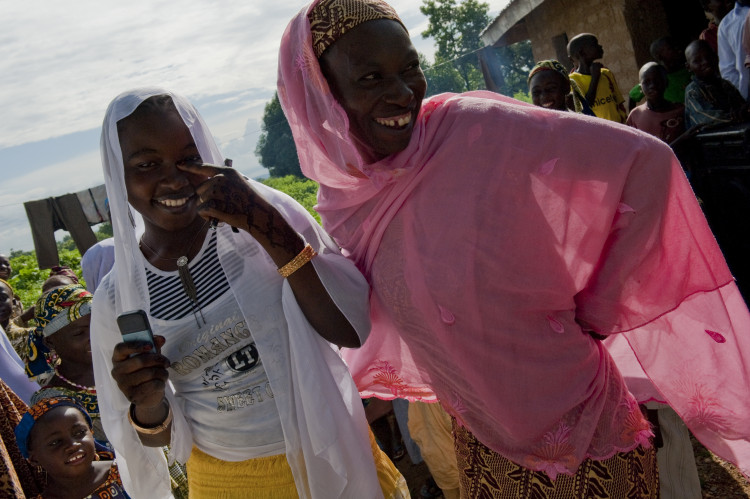It is well documented that Nigeria is now Africa’s largest economy, as well as its most populous nation, 1 in 5 people in sub-Saharan Africa is Nigerian (Source: The Economist, Nigeria: Africa’s new Number One, April, 2014). The country is also Africa’s largest mobile market with more than 179 million mobile subscribers (Source: Nigerian Communications Commission, 2014).
Business-to-consumer e-commerce sales in Africa will come in above $2 billion this year, and annual sales growth of around 40 percent is forecasted for the next decade or so according to yStats.com.
Companies that don’t realize that Nigerian consumers are already the most networked consumers on the continent, that they are getting smarter everyday and deeply joined in conversation with their friends and colleagues, will miss the boat entirely. The train is now leaving the station.
So it goes with reason that mobile adoption and e-commerce sales forecasts are setting Nigeria up for an unprecedented era of growth in the retail sector.
Retailers looking at Nigeria cannot afford a “wait and see” approach when devising a market entry or expansion strategy and mobile must be a part of the plan. Nigeria has entered an age where the average consumer now uses potent new mobile technologies to communicate and move faster than the companies with whom they regularly do business. Most businesses, let alone retailers, are not prepared for this new consumer power: a challenge made even more difficult by the logistical complexities associated with the terrain, slow movement on infrastructure development by government agencies and the demanding attention to detail that consumer segmentation requires in Africa’s most culturally diverse nation.
Here are some important marketplace observations about mobile and the Nigerian consumer (Source: ITU, International Telecommunication Union and Statista.com):
- In Nigeria, as in most emerging countries, mobile penetration is significantly higher than internet penetration. Case and point, the USA is now approaching 15 years of mobile commerce and penetration currently sits at 19%, and is forecasted to rise to about 27% over the next 4 years. At the same time important people in African retail are privately speculating that mobile commerce in African economies such as Nigeria, can exceed 40% within the first decade of activity, largely because of poorly developed infrastructure.
- In Nigeria, mobile devices are typically the consumers only method for data access and online services.
- The growth of mobile allows the average Nigerian to leapfrog poor landline infrastructure and gain access to services that would otherwise be impossible to obtain.
The Nigerian consumer is drawn toward businesses that can provide wide ranging mobile services. They already use their devices for ‘showrooming’ and to make mobile payments, and they have also figured out that they can get far better information on certain products from their network of fellow consumers rather than from vendors or suppliers, in effect rendering useless any corporate boasts about adding value to commoditized products.
Retailers doing or considering doing business in Nigeria must roll out mobile services that make a genuine difference in this consumers life or risk becoming irrelevant. So what are a few ways you can begin to take advantage of these (B2C) mobile developments in Africa’s largest economy?
-
Focus on the all important consumer segment: young, tech-savvy digital natives. Average age in Nigeria is 18.2 (Source: CIA, fact book) and each of these young people are in position to educate their extended family members about the benefits of mobile commerce.
-
Test and launch a variety of advanced services targeted at younger consumers i.e mobile price comparisons, in-store or online mobile payments, SMS marketing and entertainment driven promotions, while providing basic mobile services such as mobile coupons or a mobile optimised website to the mass market.
-
Find creative ways to push the daily/weekly prices on key staple goods and services to consumers using mobile devices. The path to brand loyalty for many Nigerians goes through pricing, promotional activity and “delivery on promise”. Second chances are few and far between in this part of the world. Nigerians are a trust sensitive demographic, as such foreign and local brands have to fight to earn brand loyalty. Your marketing strategy alone will not deliver this to you.
- Respect the consumers intelligence – Access to better information, faster, now means a Nigerian consumer educated on par with any western consumer. Online, traditional and multi-channel retailers need to come to market with quality brands and best in class services. The days of of peddling sub standard products and services to the African consumer are disappearing quickly. Nigerians, as do most Africans now know they have a powerful digital voice and they are prepared to use it to demand consumer rights they (painfully) know have long been denied to them.

